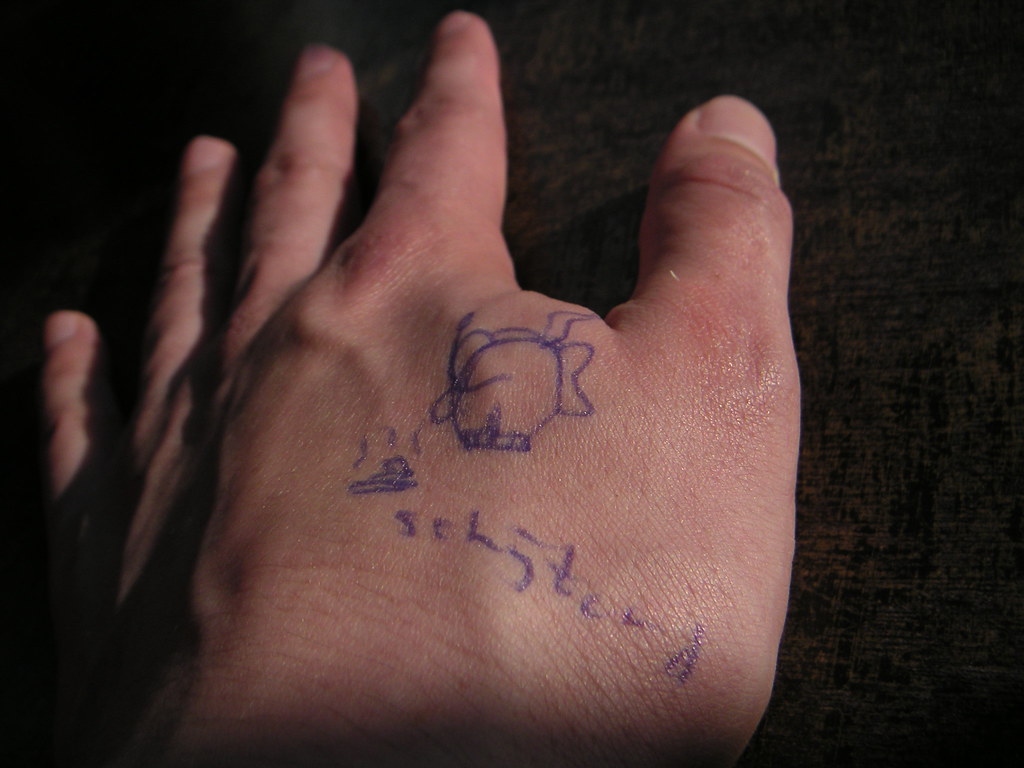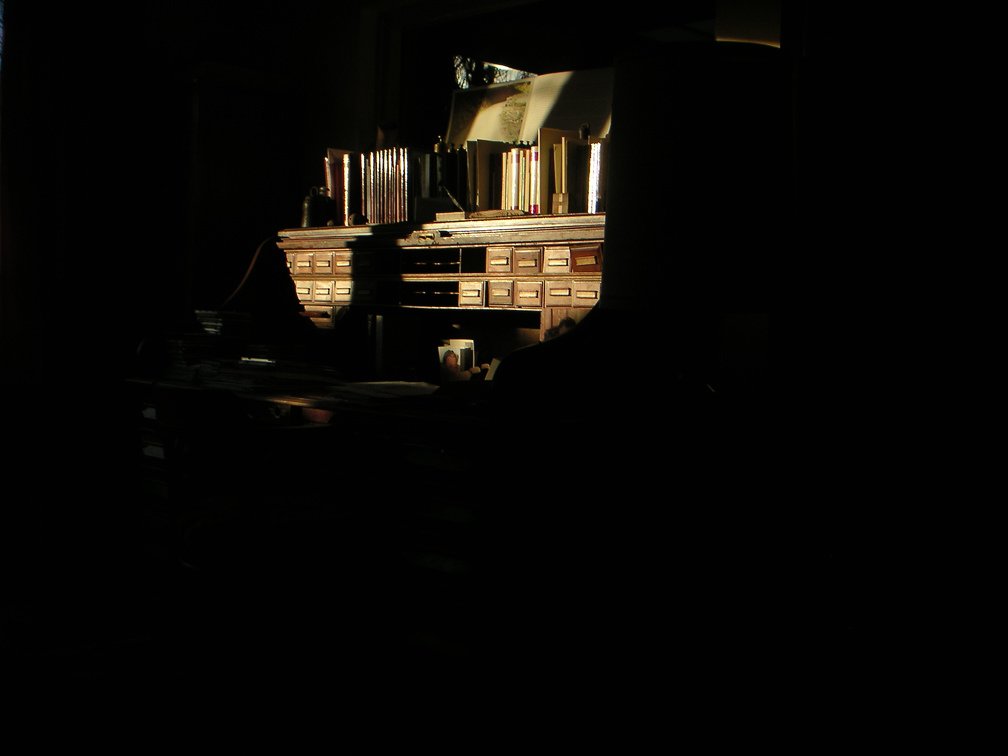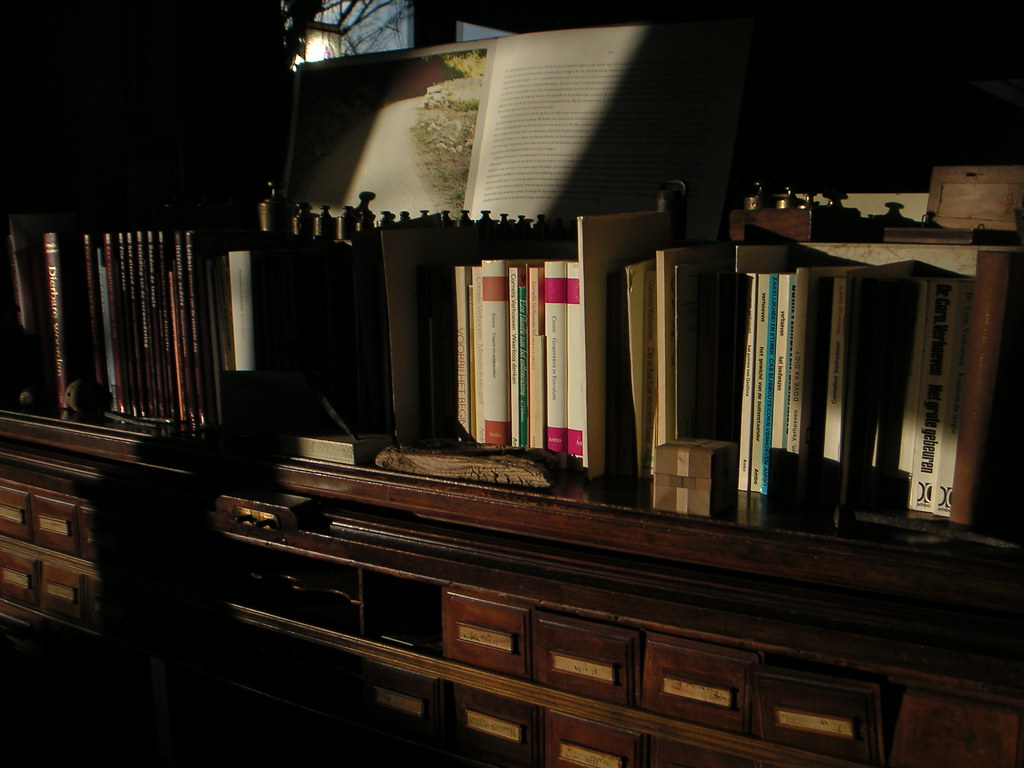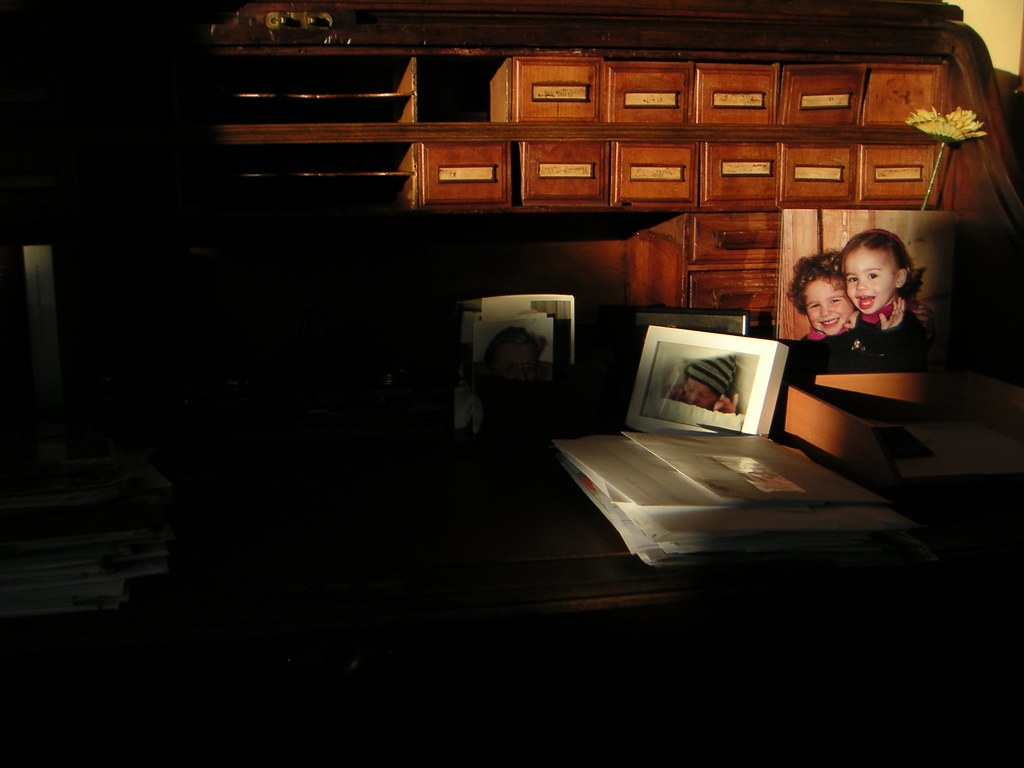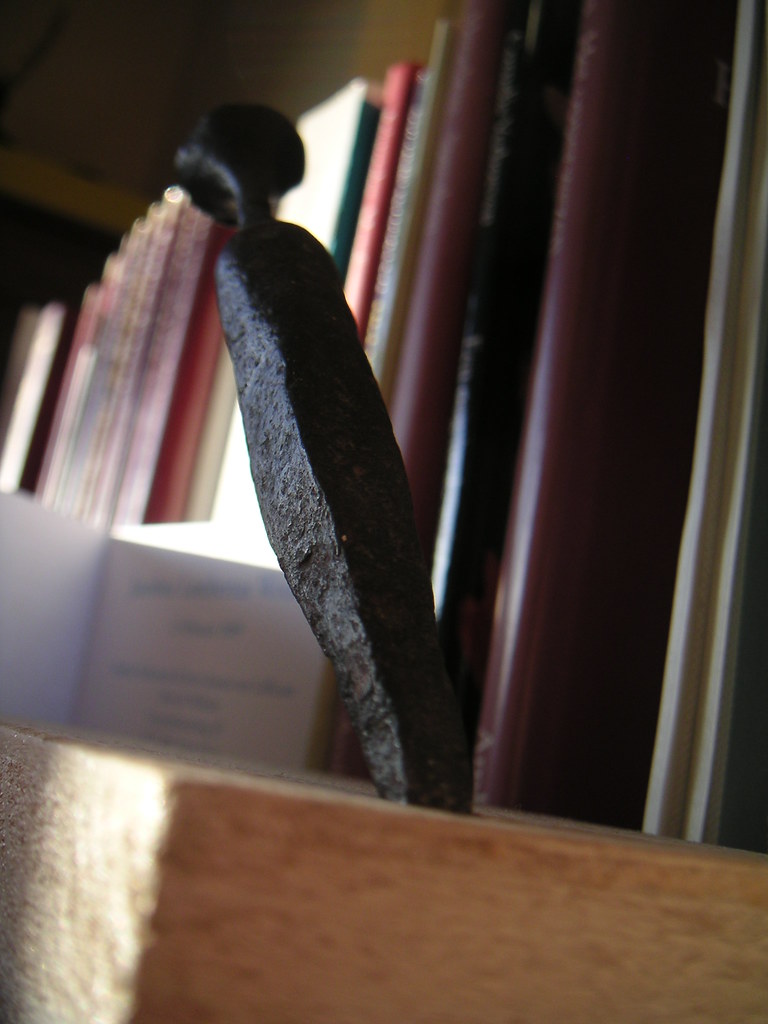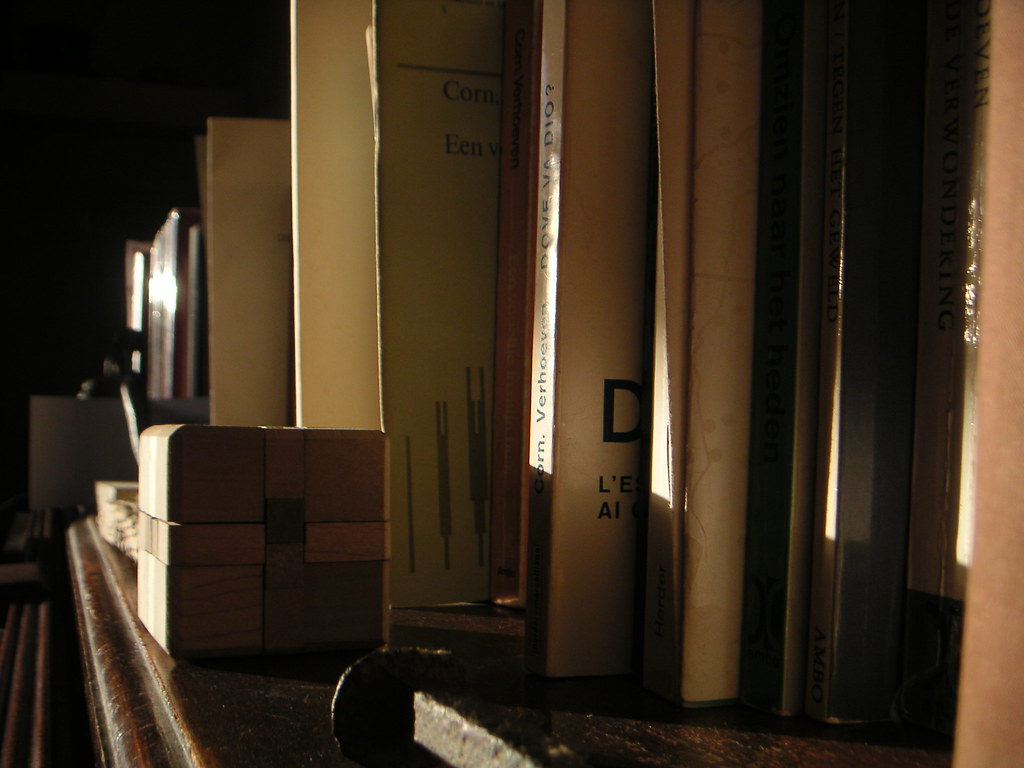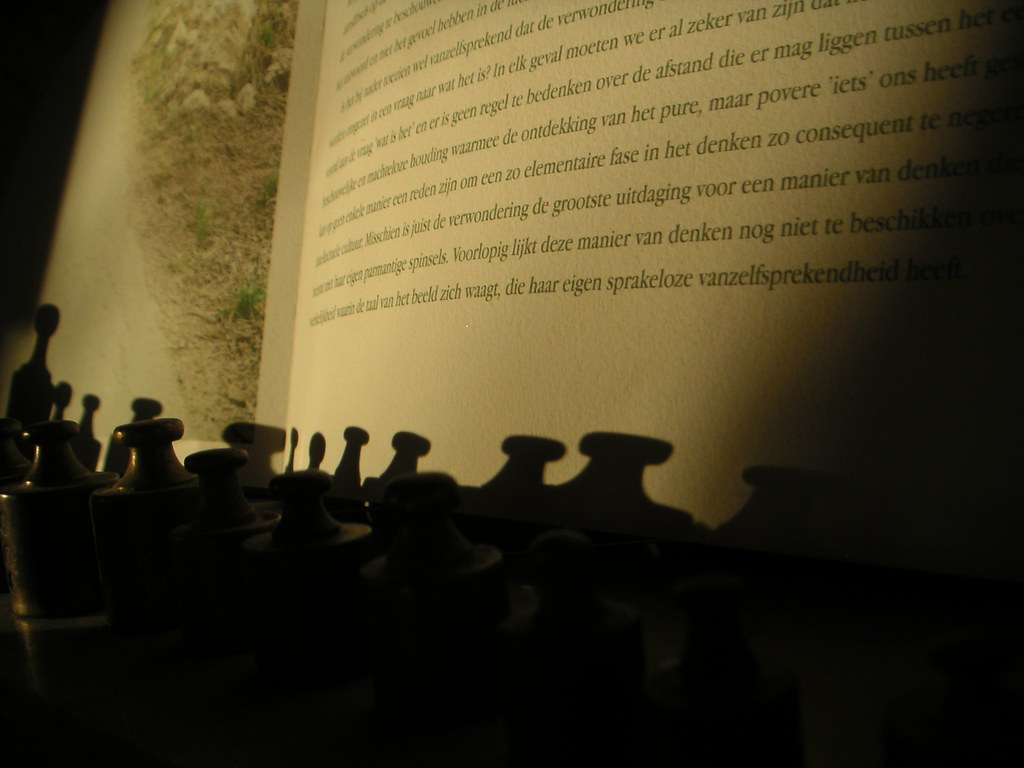In the huge collected works of my father, i make a couple of appearances. Each time he mentions me my heart does a little dance. In the following essay, i feature as a variation on Narcissus, so me reading it, and translating it, gives the whole experience a layer of contemplating a contemplation on a contemplating younger version of me that makes my brain all mushy -if not by sentiment then by the metaphysical steps it has to take.
NarcissusMy son was kneeling in front of a tub filled with rainwater and was looking attentively at the little animals swimming in it. The sunlight, which had to make its way through erratically moving bushes, kept changing his view. I saw how he weighed his chances and tried to find the right balance between light and shadow. His hair was almost hanging in the water. Sometimes he would hold that curtain to the side to get more light on the water and the animals, but that seemed to hinder him more than it helped. He was endlessly fascinated by the display and I by his attention. For an outsider who would have witnessed this scene, it must have been a very complicated game of looking at something and looking at looking. And merely by looking they would have made the tableau even more complex.
I wanted to take a picture, from an overhead diagonal, to capture the reflection of his serious face amidst the little beasts. I didn’t, because in all likelihood it wouldn’t have become the masterpiece I momentarily had in mind, something like a painting by Dante Gabriel Rossetti, an impossible unity of refinement and innocence. And for sure my technical actions would have disturbed the scene which fascinated me so much even more drastically than the observing eye of a third party. Why don’t events pause themselves for a while when they reach their zenith?
It is always fascinating to watch children being busy and concentrated, especially when a maximum of activity is paired with a minimum of movement. The miracle seems to happen that they are completely outside of themselves, engrossed in something that is more interesting than their ego. But it does not happen completely, for they too get in the way of themselves, strain themselves trying to lift their own weight, and cannot suspend their presence for a while to become all eye and to see without making themselves visible.
I thought of the mythical hunter Narcissus, who for the first time in his life saw his own image reflected in water en became fascinated with it. With my own little Narcissus I had the idea I was watching the opposite, since he only had attention for what was moving in the water, and therefore his mirror image was an obstacle from which he cunningly tried to liberate himself. He kept bowing deeper to cover that reflection with the shadow of his hair, but the further he went, the darker it got, the less he could witness the captivating life in the water. The closer he came to it, the further his efforts removed him from it and the more his presence weighed in.
He didn’t seek his own image and neither did Narcissus, who discovered it by accident and only then started paying it attention; but he in effect wanted to turn off his reflection to fully concentrate on the things themselves that he was seeing. He didn’t succeed in making his own presence undone and still remain observer in front of the treacherous mirror that is water. I was surprised that he didn’t for a moment lose his patience and willingly disturbed the scene so he would no longer have to be a witness to his failure. He kept attempting the impossible.
His mythological predecessor did not smash the mirror –for it moved with him- but disappeared in it. This Narcissus, since long used his own image, tried to filter out the disturbance by half closing his eyes and gazing through his eye-lashes. It looked like he was leering at prey that would show up if he’d pretend not to pay attention. Is that too the big trick of sleepy carnivores? They can be at the same time lost in contemplation and preparing to pounce, a wondrous combination.
What I saw before me was the enigma of contemplation in the very concrete shape of an attentive child. He was completely with himself and completely lost in the things. At that moment he was to my eyes more of a child than ever, but at the same time I saw in him too the classic paradox of the philosopher as a weight that wants to weigh itself. I Understand less and less why psychologists have made this elemental given into a paradigm of a deviation. Do they even know the story of Narcissus?
The parents of narcissus, both born out of water, were promised that their son would reach old age, as long as he wouldn’t get to know himself. And he didn’t show any signs of being interested in himself. The hunter is completely geared towards the outside world. His eyes are focussed on everything but himself. So when Narcissus saw his own image reflected in the water, he did not know that he saw himself and not some prey. Narcissus’ error was not that he mistook an image for a reality or himself for another, but that he approached the subject of his perception as a hunter and tried to grab it instead of seeing it.
Narcissus is the one who flees into action the moment contemplation is needed. In his attempt to identify with his own actions he dissolves in the shapeless water, his origins. Contemplation discards ownership. It only wants to be an eye and only wants to see. But sometimes the eye sees itself and then it sees too little.
~ Cornelis Verhoeven

Picture by Gabriel Dante Rossetti, 'A parable of Love (or Love's Mirror)'


